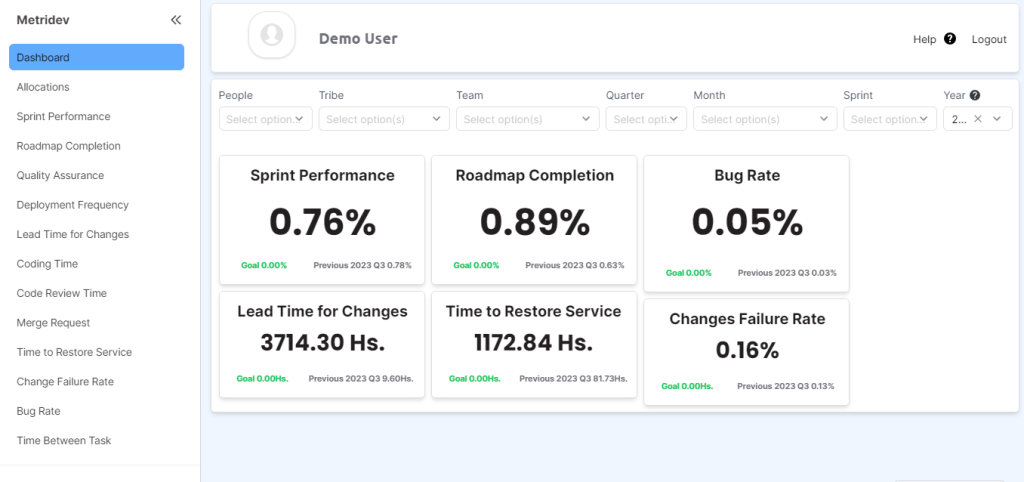
Best Practices: Software Engineering Management
Introduction
Best Practices for software engineering management plays a crucial role in ensuring the successful development and delivery of high quality software products. It involves overseeing and coordinating the activities of software engineers to meet project goals and objectives.
In this article, we will explore the role of a software engineering manager. We’ll delve into the skills and qualities required to excel in this position. Additionally, we’ll examine the challenges faced in software engineering management. Moving forward, we will discuss best practices for effective software engineering management. This will include topics such as agile project management, communication and collaboration strategies, and the tools and technologies available to support this role.
BEST PRACTICES THAT YOU NEED YO KNOW
What is software engineering management?
Software engineering management involves the planning, coordination, and execution of software development projects. It encompasses a wide range of tasks, including setting project goals and objectives. This involves allocating resources, managing budgets and timelines. Additionally, it involves ensuring the quality and performance of the software being developed. It also involves the guidance of a team of software engineers throughout the software development lifecycle. This guidance spans from requirements gathering to deployment and maintenance.
The role of a software engineering manager
A software engineering manager plays a pivotal role in the success of software development projects. They are responsible for building and leading high-performing software engineering teams, ensuring the team has the necessary skills and resources to deliver on project goals. Additionally, they provide technical guidance and support to the team, helping to resolve complex technical issues and making critical decisions that impact the project’s success. A software engineering manager also collaborates with stakeholders, such as product managers and executives, to align project objectives with business goals.
To excel in this role, a software engineering manager must possess a combination of technical expertise and leadership skills. They should have a deep understanding of software engineering principles, processes, and best practices. Additionally, they should have excellent communication and interpersonal skills to effectively collaborate with team members and stakeholders. A software engineering manager should also be able to think strategically, anticipate potential risks and challenges, and make data-driven decisions to mitigate them.
What it takes to be a software engineering manager?
Becoming a successful software engineering manager requires a diverse skill set and a commitment to continuous learning and improvement. Here are some key qualities and skills that are essential for this role:
1. Technical expertise: A software engineering manager should have a strong technical background and experience in software development. They should be familiar with different programming languages, software development methodologies, and tools.
2. Leadership and communication: Effective leadership and communication skills are vital for a software engineering manager. They should be able to inspire and motivate their team, provide clear directions and guidance, and facilitate effective communication and collaboration among team members.
3. Problem-solving and decision-making: Software engineering managers are often faced with complex technical challenges and critical decisions. They should possess strong problem-solving and decision-making skills to analyze problems, evaluate possible solutions, and make informed decisions that align with project goals.
4. Adaptability and flexibility: The software engineering landscape is constantly evolving, with new technologies and methodologies emerging regularly. A software engineering manager should be adaptable and open to change, willing to learn and adopt new tools and techniques to improve the team’s productivity and efficiency.
5. Team management: Managing a team of software engineers requires excellent interpersonal and people management skills. A software engineering manager should be able to build and nurture a cohesive and high performing team, provide constructive feedback and mentorship, and resolve conflicts or issues that may arise within the team.

Some Challenges
Software engineering management is not without its challenges. Here are some common challenges that software engineering managers often face:
1. Managing competing priorities: Software engineering projects involve multiple stakeholders with different priorities and expectations. Balancing these competing priorities can be challenging, requiring effective prioritization and resource allocation.
2. Technical debt and legacy systems: Many software engineering projects involve working with legacy systems or dealing with technical debt accumulated over time. Software engineering managers need to find ways to address these challenges while ensuring the delivery of new features and improvements.
3. Scope creep and changing requirements: Requirements in software engineering projects can change frequently due to evolving business needs or market conditions. Managing scope creep and ensuring alignment between project goals and changing requirements is a constant challenge for software engineering managers.
4. Team dynamics and collaboration: Building and maintaining effective collaboration and teamwork within a software engineering team can be challenging, especially when team members come from diverse backgrounds and have different working styles. Software engineering managers need to foster a supportive and inclusive team culture to maximize productivity and creativity.
5. Technical and operational risks: Software engineering projects can be exposed to various technical and operational risks, such as security vulnerabilities, performance issues, and infrastructure failures. Software engineering managers need to proactively identify and mitigate these risks to ensure the successful delivery of software products.
Best practices for effective software engineering management
To overcome the challenges in software engineering management and ensure the successful delivery of software projects, it is essential to follow best practices. Here are some key best practices that software engineering managers can adopt:
Agile project management in software engineering
Agile project management methodologies have gained popularity in software engineering due to their flexibility and adaptability. These approaches, such as Scrum and Kanban, emphasize iterative development, frequent collaboration, and continuous improvement. By implementing agile project management practices, software engineering managers can increase transparency, manage scope effectively, and deliver high-quality software products within tight timelines.
Communication and collaboration strategies for software engineering teams
Effective communication and collaboration are crucial for the success of software engineering teams. To facilitate these essential aspects, software engineering managers should establish clear channels of communication. Additionally, they should encourage open and honest communication among team members. Moreover, they must foster a culture of collaboration and knowledge sharing within the team. To enhance communication and collaboration further, regular team meetings, stand-ups, and retrospectives can be implemented. These practices contribute to an environment where team members can effectively work together and share insights.
Tools and technologies for software engineering management
Numerous tools and technologies are available to support software engineering management. Project management tools, such as Jira and Trello, can help in tracking project progress, managing tasks, and facilitating collaboration. Version control systems, such as Git, enable seamless code collaboration and version control. Monitoring and alerting toolkit, like Metridev, provides visualization of project costs, effort, and Delivery forecasting.
What is the management role for software engineer?
The management role for software engineers differs from that of a software engineering manager. While software engineering managers focus on overseeing and coordinating software development projects, software engineers are primarily responsible for designing, coding, and testing software systems. However, software engineers can also take on management roles, such as technical leads or project managers, where they provide technical guidance and leadership to the development team.
Software engineering management solutions and platforms
In recent years, several software engineering management solutions and platforms have emerged to streamline and automate software engineering processes. These solutions provide features such as project planning, resource management, task tracking, and collaboration tools, all in one integrated platform. Some popular software engineering management solutions include Microsoft Azure DevOps, and GitHub Projects. These platforms help software engineering managers in effectively managing software development projects, enhancing team collaboration, and improving overall productivity.
Conclusion
Software engineering management is critical for the successful development and delivery of high-quality software products. Effective software engineering management requires a combination of technical expertise, leadership skills, and the ability to navigate challenges and adopt best practices. By implementing agile project management methodologies, fostering effective communication and collaboration, and utilizing the right tools and technologies, software engineering managers can overcome challenges and ensure the successful delivery of software projects. With the continuous evolution of software engineering practices and the availability of software engineering management solutions, the role of software engineering managers will continue to be instrumental in driving innovation and delivering exceptional software products.
This article provides an overview of software engineering management, including the role of a software engineering manager, the skills required, challenges faced, and best practices to overcome these challenges. By following them and leveraging software engineering management solutions, software engineering managers can effectively lead their teams and deliver successful software projects.
To keep learning about software development process we recommend you to read our article about Code Complexity. Also share this content on your social media and spread the knowledge 😉
IT METRICS TO BECOME AN EXPERT





























Leave a Reply